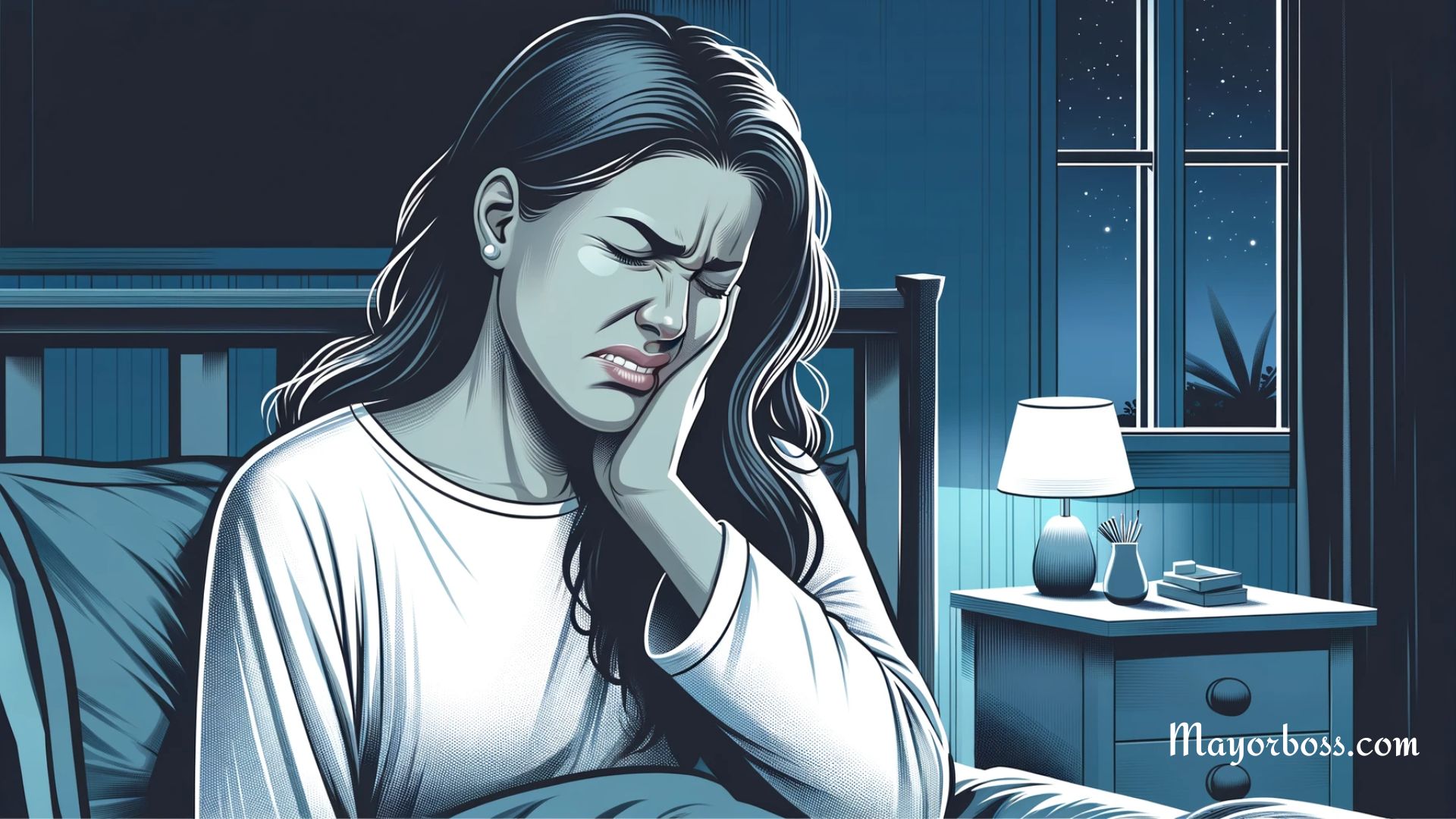Why Your Toothache Hurts More At Night
Why are toothaches worse at night? There are a few reasons why tooth pain can feel worse at night, from the position of your body to the absence of daily distractions.

Increased Blood Flow to the Head
When you lie down to rest at night, your body’s position changes. Instead of standing or sitting upright, you’re horizontal. This shift can lead to an increase in blood flow to your head, which might result in greater tooth pain. Since your heart isn’t working against gravity as much, the blood pressure in your head can increase, potentially exacerbating any pain you’re feeling in your teeth.
Eating Late at Night
Eating late at night could also contribute to tooth pain. If you eat and then go to bed without brushing your teeth, the leftover food particles and sugars can feed the bacteria in your mouth, leading to more acid production and a higher chance of pain from cavities or gum disease. Additionally, if you consume acidic or sugary foods and drinks, they can irritate an already sensitive tooth, making any existing pain worse.
Distraction Levels Decrease
During the day, you’re likely busy with a multitude of tasks, and your brain has a whole lot to focus on. This activity and stimulation can actually help distract you from the pain. However, when night falls and things quiet down, you have less to keep your mind off the throbbing in your mouth. So, the pain seems to roar to life as the world quiets down because now you can focus more on how your tooth feels.
Nighttime Inflammation
Inflammation is your body’s natural response to infection or injury, and it can lead to pain. Throughout the day, you’re moving, which helps to keep fluids in your body moving. But at night, when you’re not moving much, inflammation can build up, and this can make any pain in your body, including in your tooth, feel worse.
The Role of Saliva
Saliva plays a key role in keeping your mouth clean. It washes away food particles and reduces the acidity in your mouth, which can help prevent pain from a toothache. During the day, you produce more saliva. Yet, at night, saliva production decreases, and this can allow for more bacterial growth and acidity, potentially leading to increased tooth pain.
Bruxism: Chronic Teeth Clenching and Grinding
Bruxism, which is the medical term for chronic teeth clenching and grinding, can play a significant role in why you might experience more tooth pain at night. Many people unknowingly clench or grind their teeth while they sleep. This constant pressure can lead to toothaches, as well as jaw pain and headaches. Since you’re not aware of this habit while sleeping, you might wake up with severe tooth pain without knowing the cause.
Cavities and Tooth Decay
Cavities are another common reason for toothache that worsens at night. These holes in your teeth are formed by decay, which is the result of bacteria in your mouth turning sugar into acid. This acid can eat away at the enamel on your teeth, leading to cavities. When you’re lying down at night, you might feel this pain more acutely, particularly if the decay has reached the inner layers of the tooth where the nerves are.
How to Manage Toothache at Night
- Maintain Good Oral Hygiene: Brushing and flossing regularly can help prevent the conditions that lead to toothaches.
- Use Pain Relief: Over-the-counter pain relievers can help manage the pain. Always follow the directions on the label or get advice from a pharmacist or dentist.
- Wear a Mouthguard: If bruxism is the cause of your toothache, a dentist can fit you with a mouthguard to protect your teeth while you sleep.
- Address Cavities Early: Regular dental check-ups can catch cavities before they become painful, and treating them early can prevent pain at night.
- Adjust Your Eating Schedule: Try to avoid eating right before bed, and if you do, brush your teeth to remove food particles and decrease the risk of decay.
- See a Doctor: If the pain persists, it’s essential to see a dentist. They can diagnose the problem and provide appropriate treatments.
In summary, the pain from toothaches can seem to spike at night due to factors like increased blood flow to the head when lying down, lower distraction levels, and reduced saliva production. Conditions like bruxism and cavities, as well as habits like eating late at night, can exacerbate this pain.
Good oral hygiene, pain relief measures, and professional dental care are key to managing and preventing toothache pain, ensuring you can rest more comfortably.
